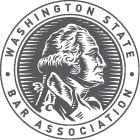World Peace Through Law Section
The World Peace Through Law Section promotes education on and discussion of law, peace, and human rights. Member benefits include frequent forums and Continuing Legal Education programs dealing with challenging global and human rights issues. The Section engages in additional educational activities with persons and organizations who share an interest in world peace through law.
Annual Report |
Budget |
Bylaws | Year in Review | Elections |
Meeting Minutes | Newsletters
Join Now
Page Navigation
The World Peace Through Law Section offers many resources and benefits for members. On this page you will find information about the section, their upcoming events and offerings, as well as information about the section's executive committee.
Upcoming Programs
Check back here for the latest in programs and updates from the World Peace Through Law Section.
Visit Our LinkedIn Group
LinkedIn members are invited to visit the World Peace Through Law Section's LinkedIn group page.
On-Demand CLE Programs
The World Peace Through Law Section has a great list of on-demand CLEs available. Click the following links to learn more.
Title | Agenda | Law & Legal | Ethics | Equity Ethics | Other | Total |
| Commemoration of the 75th Anniversary of the Universal Declaration of Human Rights | Agenda | 4.00 | 1.00 | 5.00 | ||
| AI and Human Rights: Legal Perspectives and Dilemmas | Agenda | 1.00 | 1.00 | 1.00 | 2.00 | 5.00 |
| Defending Human Rights and Environmental Defenders | Agenda | 2.00 | 1.00 | 3.00 | ||
| Cause and Movement Lawyering | Agenda | 2.25 | 1.00 | 0.75 | 4.00 | |
| Examining People's Movements Through the Law | Agenda | 6.00 | 1.00 | 7.00 | ||
| Mobilizing Towards Radical Transparency in Extractive Industry Governance | Agenda | 1.00 | 1.00 |
Past Programs
Webinar: Book Banning: The Global Campaign
This webinar will examine global trends in book censorship and will consider the kinds of books most likely to be censured; the methods used by governments to suppress books; whether censorship is ever justified, and what the responses should be to censorship. We will consider the global censorship of books relative to the First Amendment in the U.S., as well as the rights to freedom of expression that may be raised in other countries under the International Covenant on Economic, Social and Cultural Rights, and the UN Declaration on the Rights of Indigenous People.
Faculty:
Dr. Dennis B. Klein, George Mason University, Teaneck, NJ
Somaya Selim, Congress of Nation and States, Istanbul, Turkey
Watch the Video (1 hour, 33 minutes)
This video is not accredited for CLE credit and is available for viewing for up to one year after the live event date (Aug. 27, 2025).
Webinar: Contracting for Human Rights and the Environmental
Thanks for joining us for an introduction to the work of the Responsible Contracting Project (RCP), whose mission is to improve human rights and environmental outcomes in global supply chains through better contracting practices. The RCP team will explain the "what, why, and how" of responsible contracting, how companies often get their contracts wrong, and how adopting RCP's tools and principles can support better outcomes for people and planet, as well as closer alignment with new due diligence legislation and trade sanctions regimes.
Watch the Video (2 hours)
Faculty:
Sarah Dadush, Responsible Contracting Project & Rutgers Law School, New York City, NY
Chavi Keeney Nana, Responsible Contracting Project & University of Michigan School of Law, Ann Arbor, MI
This video is not accredited for CLE credit and is available for viewing for up to one year after the live event date (March 21, 2025).
Webinar: The Law Against War
Professor Olivier Corten of Université Libre de Bruxelles (ULB), Belgium, author of The Law Against War will speak about methodological approaches in development of customary international law in general and as it relates to use of force. This CLE will build on our Section's March 9, 2023 CLE "Self-Defense and 'Unwilling or Unable' States", covering more issues within use of force doctrine and going into more detail about methodology. It will also provide a primer in rules for development of customary international law.
Faculty: Prof. Olivier Corten, Université Libre de Bruxelles, Belgium
Webinar: Building a Just World Order
Dr. Alfred De Zayas, human rights lawyer, professor, and author of Building a Just World Order will be speaking about Chapter 2 of his book, outlining 25 Principles of International Order. Dr. de Zayas was appointed by the UN Human Rights Council as independent expert on the promotion of a democratic and equitable international order, and the 25 principles build on the 23 principles he presented in this report: this report.
Facutly: Dr. Alfred de Zayas
Webinar: Defending Human Rights and Environmental Defenders
This half-day CLE will educate lawyers who are interested in human rights and environmental issues and what makes up a human rights and/or environmental defender and why the international community is taking greater strides to protecting such individuals. We will examine contexts from different parts of the world and this CLE should benefit those interested in doing pro bono work around defender issues. Lawyers taking this CLE will also be educated on the current laws that protect human rights and environmental defenders.
Faculty:
Special Rapporteur Michel Forst, UN Economic Commission for Europe, France
Laura Harth, Safeguard Defenders, Madrid, Spain
Charis Kamphuis, Thompson Rivers University, Kamloops,
BC
Shin Imai, Osgoode Hall Law School, Toronto, ON
Nang Moet Moet, Women's League of Burma, Myanmar
Naw Hser Hser, Women's League of Burma, Myanmar
Webinar: Self-Defense and "Unwilling or Unable" States
Topics:
- Prohibition of use of force and right of self-defense in U.N. Charter Articles 2(4) and 51, and pre-9/11 development of international law as regards self-defense against armed attacks by non-state actors, focusing on the doctrine of state responsibility and the requirement of attribution.
- Post-9/11 emergence of the new concept of "unwilling and unable" states as an expanded justification for use of force in self-defense against non-state actors, in private commentary and in state practice, particularly the military operations of some states in the fight against Islamic Stat (ISIS) on Syrian territory 2014-2019.
- Restrictive and expansive approaches to use of force and self-defense in judicial decisions, state practice, and international law doctrine, and impact of the "unwilling and unable" standard on sovereignty and on the U.N. system relating to use of force.
- Whether the "unwilling and unable" standard has become customary international law, and whether it is possible to change the jus cogen norms of prohibition of the use of force and self-defense.
Faculty: Prof. Said Mahmoudi, Stockholm University, Stockholm, Sweden
Webinar: The Aftermath of the Myanmar February 2021 Coup, and Continued Challenges
In February 2021, the international community looked on as the Myanmar military junta took control of the country, making a mockery of the November 2020 election results and jailing those who belonged to the winning party. Many citizens took to the streets to protest but were the victims of violent force by the junta. The junta also continued ongoing genocides and crimes against humanity which has led to massive refugee movements and starvation.
Please join the WPTL Section for this colloquium where we host speakers from the various ethnic communities in Burma (Myanmar) to better understand the context of this injustice and to discuss the legal implications involved with the goal of mobilizing international support to stop the subversion of law and gross human rights violations. As articulated at prior meetings of the Congress of Nations and States this would include the exercise of universal jurisdiction to bring all perpetrators of crimes against the ethnic groups of Burma to justice for international crimes and an increase in support for the continued investigation by the International Criminal Court (ICC) and the International Court of Justice (ICJ).
This meeting will be co-hosted with the Congress of Nations and States and moderated by the Chair of the Burma Summit, Dr. Habib Ullah, member of its Convening Council.
You can learn more about the Burma Summit in Rochester, New York, and register to attend here.
Faculty: Dr. Habib Ullah, Chair of the Burma Summit and member of its Convening Council.
Webinar: Welcoming Afghan Refugees: Legal And Practical Issues
Hundreds of Afghan families resettling in our state face legal and practical challenges. How do we welcome them, both as legal professionals and as good neighbors?
Join us as frontline professionals discuss the factual background, applicable law, actions you can take, and your questions.
Faculty:
Aneelah Afzali, American Muslim Empowerment Network at the Muslim Association of Puget Sound
Jorge Barón, Northwest Immigrants' Rights Project
Sarah Peterson,
Washington DSHS Office of Refugee & Immigration Assistance
Stephen Poellot, International Refugee Assistance Project
Webinar: Corporate Liability Under the Alien Tort Statute: Developments Under Nestlé v. Doe and Cargill v. Doe
The Alien Tort Statute (ATS) allows federal courts to hear lawsuits filed by foreign nationals for torts committed in violation of international law. The 2021 U.S. Supreme Court cases of Nestlé v. Doe and Cargill v. Doe consider whether suits under the ATS are permissible against these U.S. corporations that allegedly aided and abetted in perpetration of child slavery on cocoa plantations in Ivory Coast. The Court is specifically considering two issues: whether there can be ATS liability against U.S. corporate defendants and whether aiding and abetting liability is permitted under the statute. Please join us for a presentation by Professor Tyler Giannini of Harvard Law School regarding these two cases and their possible impact on ATS-based litigation in the future.
Faculty: Tyler Giannini, Harvard Law School, Cambridge, Massachusetts
Webinar: A Study of Love Jihad in Asia: Interfaith Marriage Laws and Human Rights in India and Other Countries
This seminar covers:
- A review of India’s recent Prohibition of Unlawful Religious Conversion Ordinance and its impact on interfaith marriages
- Overview of laws prohibiting interfaith marriage in India and other countries
- Response by NGOs and other human rights organizations
Faculty: Dr. Garima Tiwari, School of Law, Bennett University, Greater Noida, India
Webinar: Leadership for All: Minority Bar Associations in Washington
This seminar takes a close-up look at two state minority bar associations: the Loren Miller Bar Association and the South Asian Bar Association of Washington:
- What are the roles, best practices, and challenges faced by minority bar associations in Washington?
- What strategies are effective for leading a smaller minority bar association?
- What issues should be considered when starting, building, and expanding new projects?
- What has it been like leading a change in direction during the pandemic?
Faculty:
James Johnson, Emery Reddy PLLC, Seattle
E. Rania Rampersad, President, South Asian Bar Association of Washington
Executive Committee
Chair: Nandini Rao (2025-2026) Chair Elect: Dwight Van Winkle (2025-2026) Immediate Past Chair: Bridgett Fisher (2025-2026) Secretary/Treasurer: Vanessa Hunsberger (2025-2026) *Nonvoting member | At-large Members: Anne Watanabe (2023-2026) New Member Liaison*: Katarina Mitrovic (2025-2027 Board of Governors Liaisons*: Parvin Price (2025-2026)
|
Executive Committee Meetings
The Executive Committee of the World Peace Through Law Sections holds hour-long Zoom meetings on the fourth Tuesday of each month at 4 p.m.
Please contact committee members for further details about upcoming meetings.
Join Our List Serve
Joining our section will give you access to our List Serve. To request an archived issue of the section newsletter, and for general section questions, please send your email address and Bar number to sections@wsba.org.






